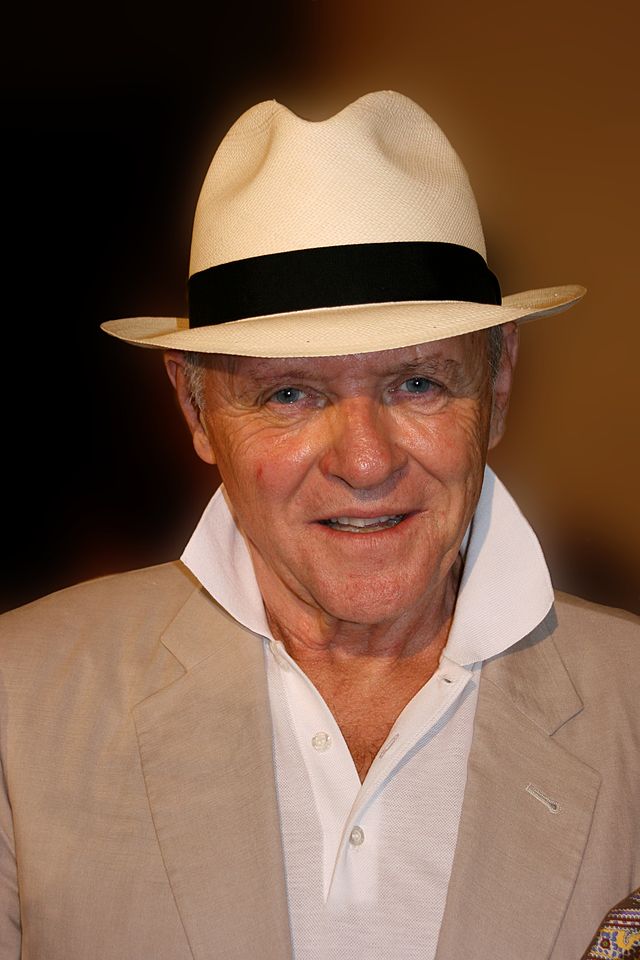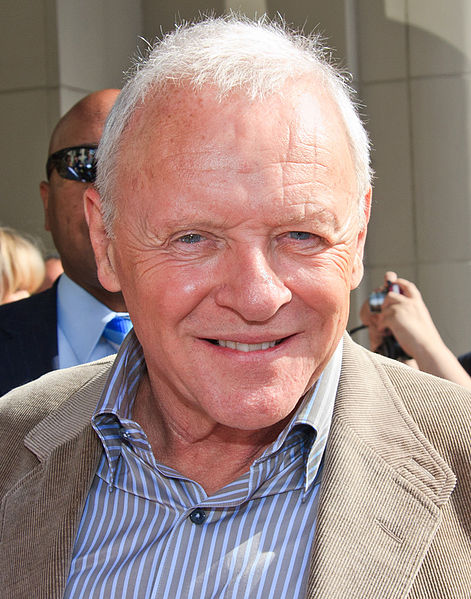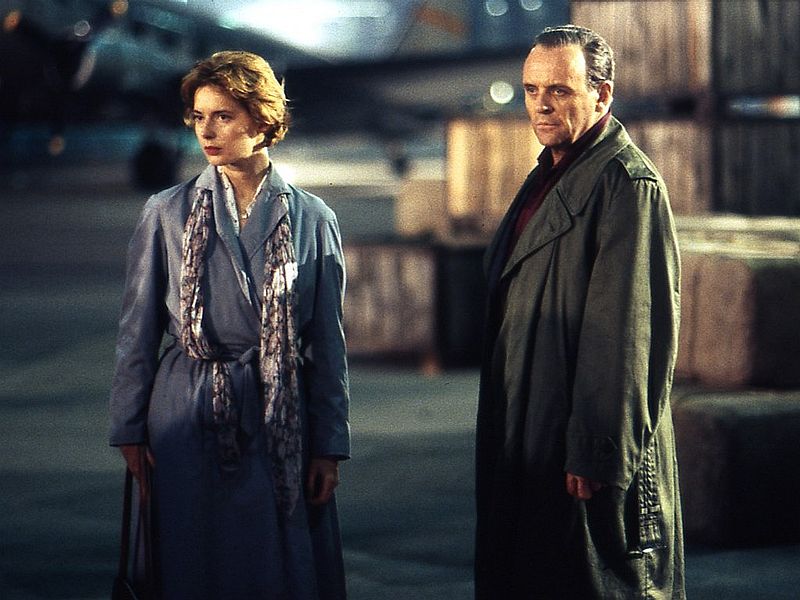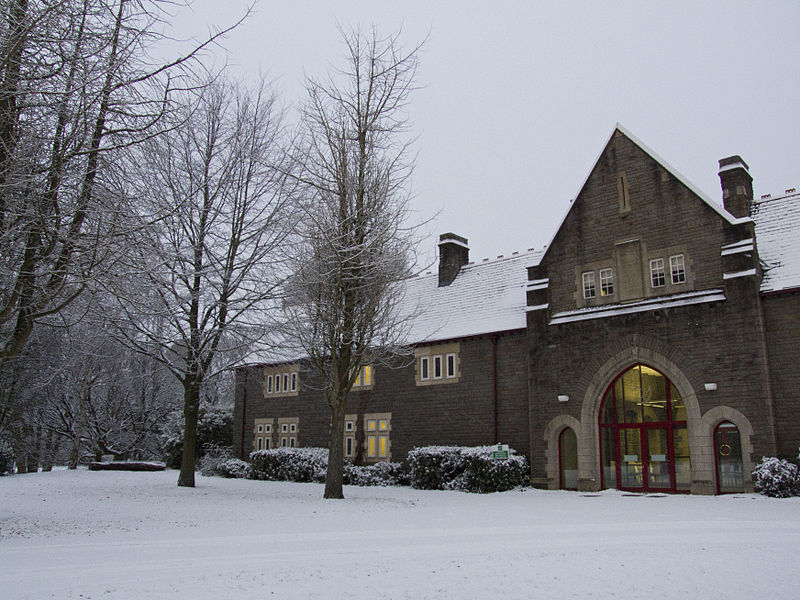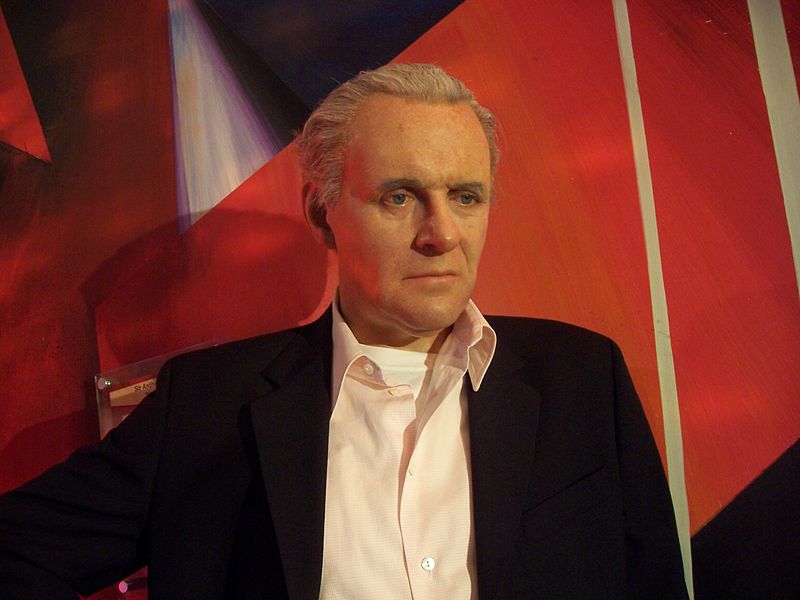BIOGRAPHICAL DETAILS
Full Name: Philip Anthony Hopkins
Description: Actor, Wales
Known For: Remembered for “A Change Of Season” and “Elephant Man”.
Location: United Kingdom
Date Born: 31st December 1937
Location Born: Margam
Photo Comments: The above image is intended for those who wish to reuse material (text and/or graphics) from the Wikipedia projects — on their own website, in print, or otherwise. It focuses on Commons as this is explicitly a collection of reusable media.
CONTACT DETAILS
Other Links: Se below:
YOUTUBE VIDEO
BIOGRAPHICAL PROFILE
Sir Philip Anthony Hopkins, CBE
Sir Philip Anthony Hopkins, CBE (born 31 December 1937) is a Welsh actor of film, stage, and television, and a composer and painter. After graduating from the Royal Welsh College of Music & Drama in 1957, he trained at the Royal Academy of Dramatic Art in London, and was then spotted by Laurence Olivier who invited him to join the Royal National Theatre. In 1968, he got his break in film in The Lion in Winter, playing Richard I.
Considered to be one of the greatest living actors, Hopkins is well known for his portrayal of Hannibal Lecter in The Silence of the Lambs, for which he won the Academy Award for Best Actor, its sequel Hannibal, and the prequel Red Dragon. Other notable films include The Mask of Zorro, The Bounty, Meet Joe Black, The Elephant Man, Magic, 84 Charing Cross Road, Bram Stoker’s Dracula, Legends of the Fall, Thor, The Remains of the Day, Amistad, Nixon, The World’s Fastest Indian, Instinct, and Fracture.
Along with his Academy Award, Hopkins has also won three BAFTA Awards, two Emmys and the Cecil B. DeMille Award. In 1993, Hopkins was knighted by Queen Elizabeth II for services to the arts. He received a star on the Hollywood Walk of Fame in 2003, and was made a Fellow of the British Academy of Film and Television Arts in 2008.
Hopkins was born in Margam, Port Talbot, Wales, on 31 December 1937, the son of Annie Muriel (née Yeates) and Richard Arthur Hopkins, a baker. His schooldays were unproductive; he found that he would rather immerse himself in art, such as painting and drawing, or playing the piano, than attend to his studies. In 1949, to instill discipline, his parents insisted he attend Jones’ West Monmouth Boys’ School in Pontypool, Wales. He remained there for five terms and was then educated at Cowbridge Grammar School in the Vale of Glamorgan, Wales.
Hopkins was influenced and encouraged by Welsh compatriot Richard Burton (also born in Port Talbot), whom he met briefly at the age of 15. Hopkins promptly enrolled at the Royal Welsh College of Music & Drama in Cardiff, Wales, from which he graduated in 1957. After two years in the British Army doing his national service, he moved to London, where he trained at the Royal Academy of Dramatic Art.
Hopkins made his first professional stage appearance in the Palace Theatre, Swansea, in 1960 with Swansea Little Theatre’s production of Have a Cigarette.
In 1965, after several years in repertory, he was spotted by Lord Olivier, who invited him to join the Royal National Theatre. Hopkins became Olivier’s understudy, and filled in when Olivier was struck with appendicitis during a production of August Strindberg’s The Dance of Death. Olivier later noted in his memoir, Confessions of an Actor, that “A new young actor in the company of exceptional promise named Anthony Hopkins was understudying me and walked away with the part of Edgar like a cat with a mouse between its teeth.”
Despite his success at the National, Hopkins tired of repeating the same roles nightly and yearned to be in films. He made his small-screen debut in a 1967 BBC broadcast of A Flea in Her Ear. In 1968, he got his break in The Lion in Winter playing Richard I. Although Hopkins continued in theatre (most notably at the National Theatre as Lambert Le Roux in Pravda by David Hare and Howard Brenton and as Antony in Antony and Cleopatra opposite Judi Dench as well as in the Broadway production of Peter Shaffer’s Equus, directed by John Dexter) he gradually moved away from it to become more established as a television and film actor. His Pierre Bezukhov for the BBC War and Peace (1972) was particularly memorable. In 1972 he portrayed WWI British Prime Minister David Lloyd George in Young Winston, and in 1977 he played British Army officer John Frost in Richard Attenborough’s WWII film A Bridge Too Far.
Above: Isabella Rosselini and Sir Anthony Hopkins in Berlin to shoot scenes for The Innocent (1993)
In 1980 he starred in The Elephant Man as the English doctor Sir Frederick Treves, who attends to Joseph Merrick (portrayed by John Hurt), a severely deformed man in 19th century London. That year he also starred opposite Shirley MacLaine in A Change of Seasons and famously said “she was the most obnoxious actress I have ever worked with.” In 1984 he starred opposite Mel Gibson in The Bounty as William Bligh, captain of the Royal Navy ship the HMS Bounty, in a retelling of the mutiny on the Bounty.
Hopkins was made a Commander of the British Empire (CBE) in 1987, and a Knight Bachelor in 1993. In 1988, Hopkins was made an Honorary D.Litt and in 1992 was awarded Honorary fellowship from the University of Wales, Lampeter. A few years later in a The Tonight Show with Jay Leno appearance, Hopkins humbly admitted that he liked his American fans and friends to call him “Tony”. Hopkins was Britain’s highest paid performer in 1998, starring in The Mask of Zorro and Meet Joe Black, and also agreed to reprise his role as Dr Hannibal Lecter for a fee of £15 million. Hopkins received a star on the Hollywood Walk of Fame in 2003.
Hopkins has stated that his role as Burt Munro, whom he portrayed in his 2005 film The World’s Fastest Indian, was his favourite. He also asserted that Munro was the easiest role that he had played because both men have a similar outlook on life. In 2006, Hopkins was the recipient of the Golden Globe Cecil B. DeMille Award for lifetime achievement. In 2008, he received the BAFTA Academy Fellowship Award, the highest award the British Film Academy can bestow.
Hopkins portrayed Odin, the Allfather or “king” of Asgard, in the film adaptation of Marvel Comics’ Thor.
On 24 February 2010, it was announced that Hopkins had been cast in The Rite, which was released on 28 January 2011. He played a priest who is “an expert in exorcisms and whose methods are not necessarily traditional”.[20] Hopkins, who is quoted as saying “I don’t know what I believe, myself personally”, reportedly wrote a line–“Some days I don’t know if I believe in God or Santa Claus or Tinkerbell”—into his character in order to identify with it. On the other hand, in other sources from the same time, he is quoted as saying that he did believe in God and had done so for decades. On 21 September 2011, Peter R. de Vries named Hopkins in the role of the Heineken owner Freddy Heineken in a future film about his kidnapping.
Hopkins portrayed Alfred Hitchcock in Sacha Gervasi’s biopic Hitchcock, following his career while making Psycho. The film was released on 23 November 2012. In 2013, he reprised his role as Odin in Thor: The Dark World. In 2014, he portrayed Methuselah in Darren Aronofsky’s Noah.
Above: Anthony Hopkins Centre at the Royal Welsh College of Music & Drama, Cardiff
Personal life
As of 2007, Hopkins resides in Los Angeles, California. He had moved to the United States once before during the 1970s to pursue his film career, but returned to London in the late 1980s. However, he decided to return to the US following his 1990s success. Retaining his British citizenship, he became a naturalised US citizen on 12 April 2000, and celebrated with a 3,000-mile road trip across the country.
Hopkins has been married three times. His first two wives were Petronella Barker (1966–1972) and Jennifer Lynton (1973–2002). He is now married to Stella Arroyave. He has a daughter from his first marriage, Abigail Hopkins (born 20 August 1968), an actress and singer. On Christmas Eve 2012, Hopkins celebrated his 10th wedding anniversary by renewing his vows at St David’s Cathedral in Pembrokeshire, Wales.
Hopkins has offered his support to various charities and appeals, notably becoming President of the National Trust’s Snowdonia Appeal, raising funds for the preservation of Snowdonia National Park in northern Wales. In 1998 he donated £1 million towards to aid the Trust’s efforts to purchase parts of Snowdon. Prior to the campaign, Hopkins authored Anthony Hopkins’ Snowdonia, which was published in 1995. Hopkins has been a patron of the YMCA centre in his hometown of Port Talbot, South Wales for more than 20 years, having first joined the YMCA in the 1950s.He supports other various philanthropic groups. He was a Guest of Honour at a Gala Fundraiser for Women in Recovery, Inc., a Venice, California-based non-profit organisation offering rehabilitation assistance to women in recovery from substance abuse. Although he resides in Malibu, California he is also a volunteer teacher at the Ruskin School of Acting in Santa Monica, California. Hopkins served as the Honorary Patron of The New Heritage Theatre Company in Boise, Idaho from 1997-2007, participating in fundraising and marketing efforts for the repertory theatre.
Hopkins is a recovering alcoholic; he stopped drinking on 25 December 1975. He said that a major help in his recovery was his belief in God. He criticised atheism, saying “being an atheist must be like living in a closed cell with no windows”. He quit smoking using the Allen Carr method.
As stated to TMZ in October 2010, Hopkins is a vegetarian. In 2008, he embarked on a weight loss programme, and by 2010, he had lost 80 pounds.
The Anthony Hopkins Centre, a £2.3 million wing of the Royal Welsh College of Music & Drama in Cardiff, was named after him.
Hopkins is a prominent member of environmental protection group Greenpeace and as of early 2008 featured in a television advertisement campaign, voicing concerns about Japan’s continuing annual whale hunt. He has also been a patron of RAPt (Rehabilitation for Addicted Prisoners Trust) since its early days and helped open their first intensive drug and alcohol rehabilitation unit at Downview (HM Prison) in 1992.
He is an admirer of the comedian Tommy Cooper. On 23 February 2008, as patron of the Tommy Cooper Society, the actor unveiled a commemorative statue in the entertainer’s home town of Caerphilly, South Wales. For the ceremony, Hopkins donned Cooper’s trademark fez and performed a comic routine.
Above: Hopkins wax statue in Madame Tussauds, October 2009
Films include.
Amistad, 1997)
War and Peace, 1972)
The Bounty, 1984)
Great Inimitable Mr Dickens, 1970)
A Bridge Too Far, 1977)
The Lindbergh Kidnapping Case, 1976)
Bram Stoker’s Dracula, 1992)
The Bunker, 1981)
Beowulf, 2007)
The Road to Wellville, 1994)
The Silence of the Lambs, 1991)
Red Dragon, 2002)
Shadowlands, 1993),
Young Winston, 1972)
Jeff Wayne’s Musical Version of Spartacus, 1992)
The World’s Fastest Indian, 2005)
Nixon, 1995)
Othello, 1981)
Peter and Paul, 1981)
Surviving Picasso, 1996)
Alexander, 2004)
The Hunchback of Notre Dame, 1982)
Victory at Entebbe, 1976)
The Lion in Winter, 1968)
Titus, 1999)
The Elephant Man, 1980)
The Mask of Zorro, 1998)
External links:
From Wikipedia, the free encyclopedia

